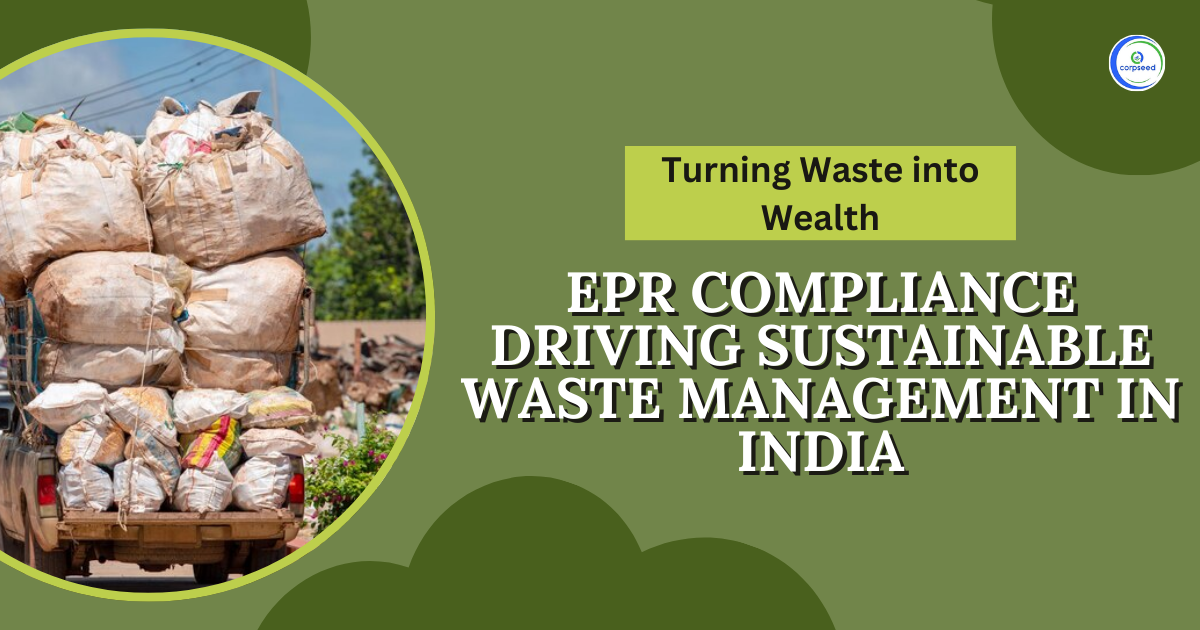Introduction: Producer responsibility organization Under EPR
Plastic waste management Rules which were notified in the year 2016 puts forth a mandatory requirement that the waste generators ought to follow, for example, appropriate steps must be taken by them to bring down the volume of plastic waste which is generated ferociously, drive the ways that implement the segregation of waste at its source and then comes the role of local bodies and recyclers.
Read Our Blog: Best Tips For Plastic Waste Management
Table of Contents
--------------Blog Contact Form-------------
In the above-mentioned rules, the following provisions with respect to the extended producer’s responsibility are included as follows:
- The producers are expected to work out having the models that form the basis for the waste collection system. These modalities must be in parallel with the EPR policy.
- The prime responsibility entailing the collection of plastic waste like pouches and sachets would be of the producers and owners of the brands. They are required to reinforce a system that functions to collect back the waste plastic produced owing to their products. The state pollution control board is the entity where the above mentioned plan must be submitted while an application is made to obtain consent to establish or consent to operate or when it's related to the renewal process.
- It must be brought to notice that within the span of two years, plastic must be phased out, especially the ones that are non-recyclable in nature and also are useless when it comes to recovering energy from them.
- It is a mandatory facet that requires the producer to notify the details of people that are involved in the supply of plastic as raw material.
EPR and its implementation
EPR simply means extended producer responsibility. It entails a policy and sets out a principle that enhances the total life cycle of the product and looks forward to optimizing it. The manufacturer of the product is endowed with the responsibility to look after the end-of-cycle management of the product. The responsibility can range from recycling to disposal mechanisms.
Overall, this system with respect to the EPR framework forms its basis on the principle that seeks to fetch the financial incentives from the producers which are then employed in the processing facilities and the industry which embraces recycling. These will very well help in meeting the targets as put forth by the respective government.
For ensuring that the EPR is effectively implemented it is deemed urgent that the producer’s role should be regarded as being essential and must not be neglected in any case. They must be made a part of all the activities pertaining to collection and disposal.
EPR and the related models
Different models underlying the EPR framework have been suggested so that the most suitable one should be adopted as per the needs of each town. The examples of the models have been jotted down below:
- Fee-based model: Under this model, the responsibility at the first instance lies with the ULBs. Keeping the current situation at hand, there is a shortcoming with respect to the ULBs which is related to the insufficiency in funds and expert know-how to deal with the collection and segregation of waste plastic. Also, much focus must be laid on building the infrastructure so that waste management can be carried out in a systematic fashion. This would be encouraging for the ULBs since lots of profits would be generated. In the case of the smaller ULBs, where they have no better facility to store the waste plastic, then the plastic can be stored in the form of pellets for as long as required until and unless an appropriate disposal method is found.
- Plastic credit model: This model works on the premise that triggers the establishment of a producer responsibility organization. Through the establishment of such an organization, better implementation can be enforced. Also, the ease of doing business can be materialized together with enhanced support for plastic recycling. PRO can make sure that the producer's obligation is very well discharged that too in a cost-effective manner with the help of the application of the experience the industry has. Success would be achieved in this realm only when there is cooperation amongst the states, especially the ones that play the lead role in designing and implementing the relevant programs launched on a local level. Also under such a model producers would be free of their will when it comes to deciding upon the options that render the establishment of the plastic waste management channels without having to maintain a link with that of any Producer responsibility organization. A producer would be able to secure the plastic credits on account of any recycling activity taking place. This policy enables a kind of environment that promotes the taking back of products mechanism.
What do we understand by the term PRO?
PRO in its literal sense means producer responsibility organization. It is deemed to be an organization that is very much professional in its nature. This organization can run on a collective basis or be handled individually by the producers who finance them.
PRO is set up to give effect to the responsible collection and channelization of the E-waste which comes from the products that have reached the end of their lifecycle and are discarded. PRO acts as a safety valve that ensures that the E-waste is handled in a manner that is environmentally sound.
This professional organization works towards providing aid to the producers so that they can very well meet the requisite targets in relation to the extended producer responsibility. These targets are duly fulfilled by employing technologies that help in processing the E-waste and finding suitable applications out of it like converting the waste to energy or fuel, whichever is more appropriate.
Read Our Blog: Extended Producer Responsibility in India
Understanding PRO in detail
PRO plays quite an extensive role in helping the producers in the execution of various tasks, some of them are listed below:
- There are certain collection targets that must be performed by the producers, which are effectively carried out with the assistance of the PRO
- PRO greatly helps the producers in establishing the required mechanism that fosters collection, for example, we can talk about the mechanism that renders door-to-door facility.
- PRO imparts flexibility in the implementation of the policy of buyback
- Collection centers are established under the know-how of the PRO in line with the rules formulated by the Central Pollution Control Board. This might include establishing warehouses and collection godowns.
- With the help of PRO, relevant arrangements especially the logistics one can be given effect.
- Awareness programs can be conducted that might help in educating the people regarding the proper disposal techniques and methods to channel the waste properly which in turn shall ensure that no harm is caused to the environment.
- With the existence of PRO, it can be ensured that a well-drafted plan would provide for carrying out the principles of the extended producer's responsibility.
- PRO would also aid in ensuring that the producer gets to file the returns in accordance with the relevant rules.
- PRO also makes sure that the recycling procedures are carried out without causing any degradation to the environment.
- Last but not least, PRO’s presence is enough in tracing the collected electronic or plastic waste.
What all actions can be implemented by PRO?
Producer responsibility organization is decked up to perform various actions, a few of which are listed below:
- PRO can play an instrumental role in motivating and educating the citizens to adopt cleaner habits like sorting out the waste.
- PRO can focus on welcoming the combined efforts of the people to work in collaboration with the public authorities at all possible levels. This may include the efforts targeting the finance related or other technical aspects.
- PRO fosters cooperation to trigger the sustained collection methods and also ensures that the waste is being reused.
- It presents opportunities to the producers in the form of incentives so that they can contribute in designing a range of products that are sustainable in nature.
- Last but not the least, it helps in highlighting the achievements in the realm of environment especially that fall under the EPR scheme.
Highlighting the capability of PRO
- Firstly, PRO is required to mention the details regarding its capacity to handle the waste plastic, that ranges from collecting, storing and recycling the plastic waste.
- On second basis, PRO must be capable enough so that the plastic waste could be channelized in such a way that duly fulfills the targets with respect to collections as set out by the respective producers or the brand owners.
- The organisational structure that the PRO plans to have in place must also be included that should specify the human resource and the other collection and storage infrastructures.
- Information regarding the collection mechanism must be provided by the PRO, which should be inclusive of the collection points and arrangements to manage the logistics.
- PRO should not shy away from organizing the public awareness campaigns to promote the culture of proper disposal systems.
PRO: Guiding Principles for producers
- It is considered important that the producers, with the help of PRO must ensure that the plastic that is collected must be of equivalent amount.
- Producers must pay due attention that proper funding is provided for supporting the culture of recycling of plastics.
- Waste pickers must be widely included in a way that works wonders in improving their income levels.
- To give effect to the ERP compliance, certificates can be obtained by the producers, importers or other entities that acts as a hallmark in ensuring that the waste has been safely handed over to the recycling centers and processing units.
- Engagement between the brand owners and the ULBs can be done collectively or at an individual level.
What is the whole process of registering PRO?
To be able to register as a PRO, one needs to submit the application to CPCB. With regards to E-waste management, the guidelines do not put forth any minimum requirement on behalf of registration of PRO, while on the other hand, with regards to plastic waste management, the following minimum requirements must be fulfilled:
Read Our Service: Producer Responsibility Organization (PRO) Authorization
At the first instance, it is necessary to fetch the registration, which must be obtained from any statutory body.
In the second place, another requirement mandates that there have to be at least five years of experience in the field of managing waste.
There is a need to mention success stories if any that deal with the disposal of municipal solid waste and must include plastic waste disposal as well.
PAN number is also a mandatory requirement, along with the GST number.
With respect to both scenarios, the ultimate authority lies in the hands of the CPCB to make a judgment as to accept or reject the application after due verification and scrutiny is done. The CPCB would respond within a time period of twenty five days.
It is to be noted that the said registration falling under the rules related to E-waste management, would continue to remain valid for a period up to three years. If you are looking to renew the registration, then the application has to be made well before the period of expiry, preferably sixty days prior to it.
National PRO Advisory Committee
This authority would have all the powers to govern the management with respect to plastic waste. It would work under the guidance of the Ministry of Housing and Urban Affairs. It shall ensure that strategies are formulated that direct the implementation of the requisite rules.
Conclusion
The waste management process is largely taken care of by the incoming PRO, which is regulated by the CPCB. It can be said that the success of any producer responsibility organization would be ensured only when there is a cooperation between public authorities and people at large. Both entities will have to work together in sync.
This portion of the site is for informational purposes only. The content is not legal advice. The statements and opinions are the expression of author, not corpseed, and have not been evaluated by corpseed for accuracy, completeness, or changes in the law.
BOOK A FREE CONSULTATION
Get help from an experienced legal adviser. Schedule your consultation at a time that works for you and it's absolutely FREE.


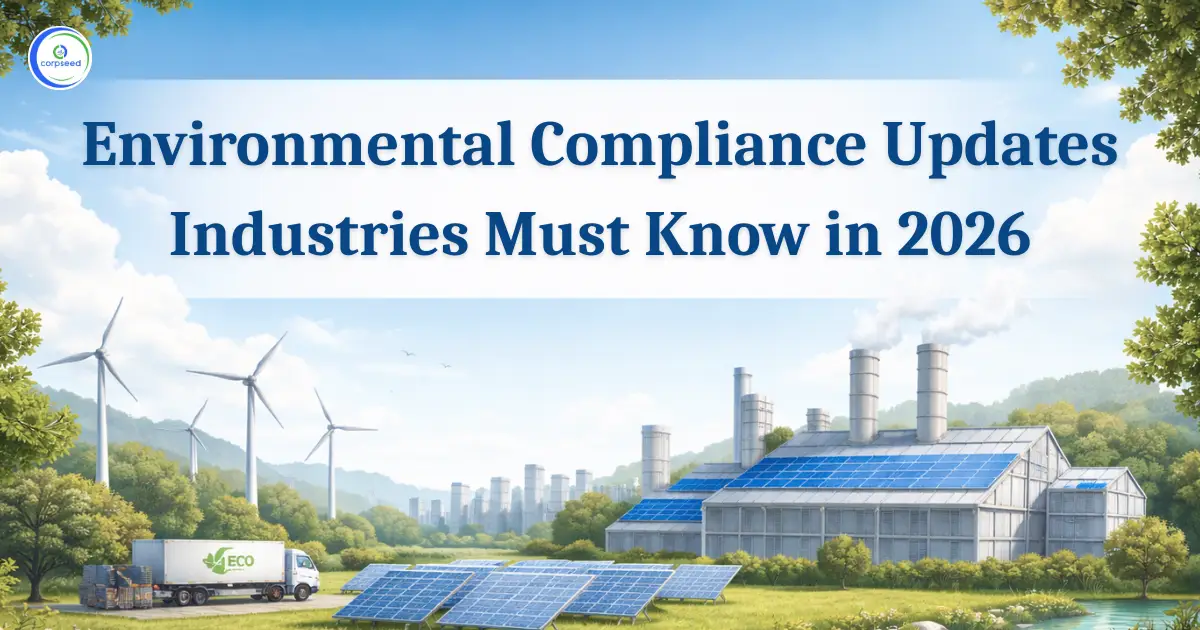
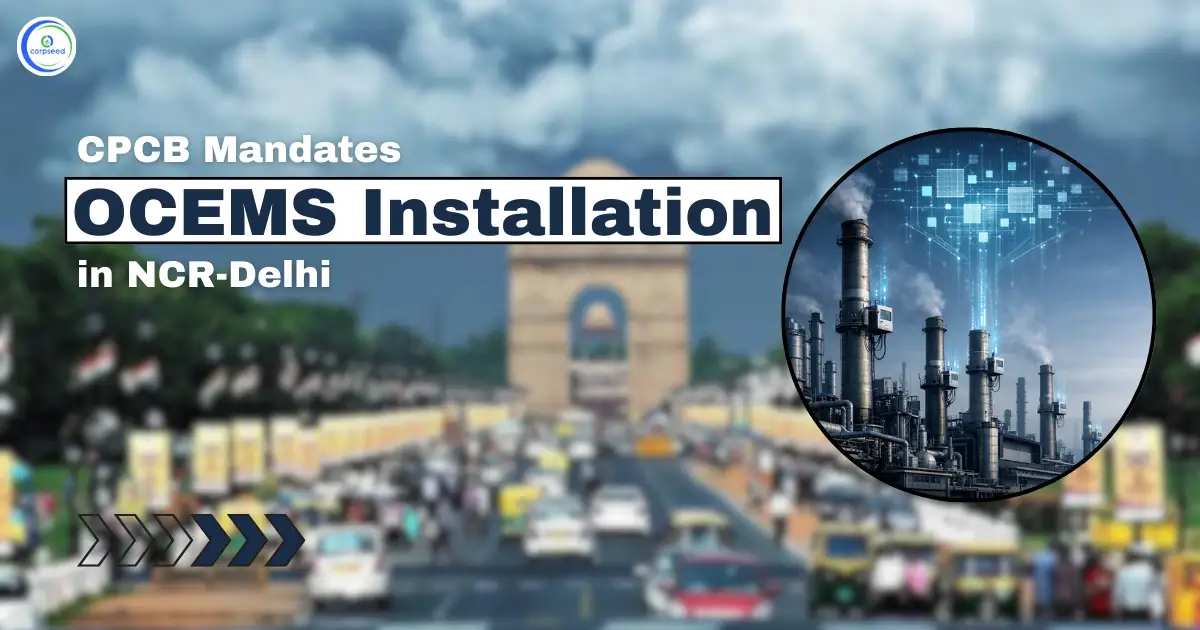
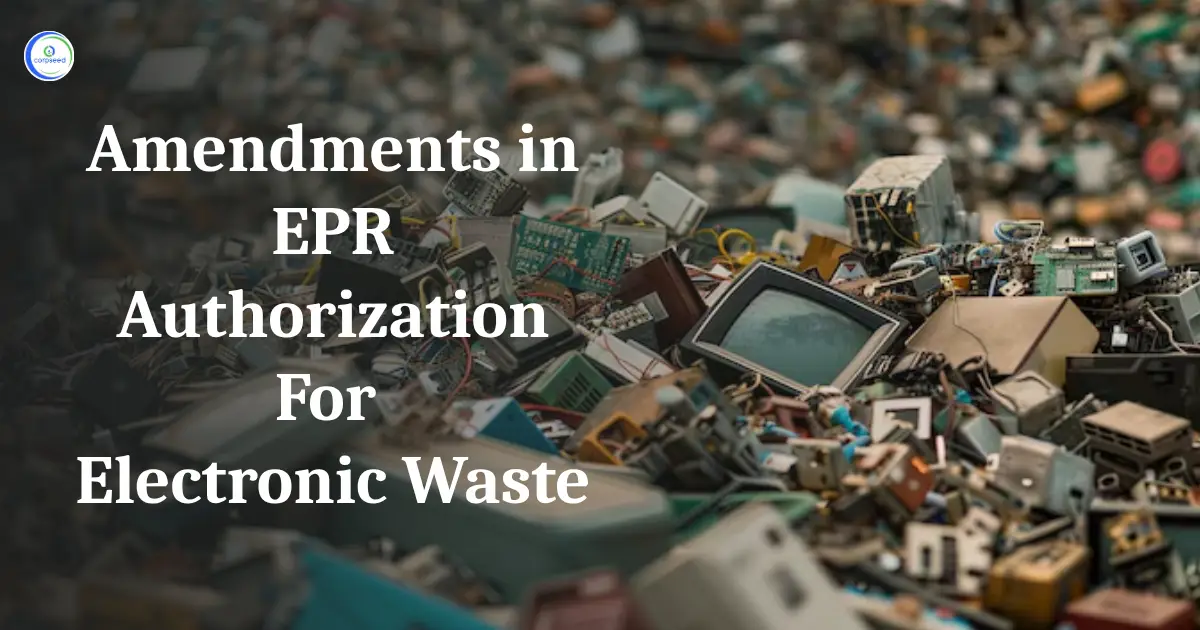
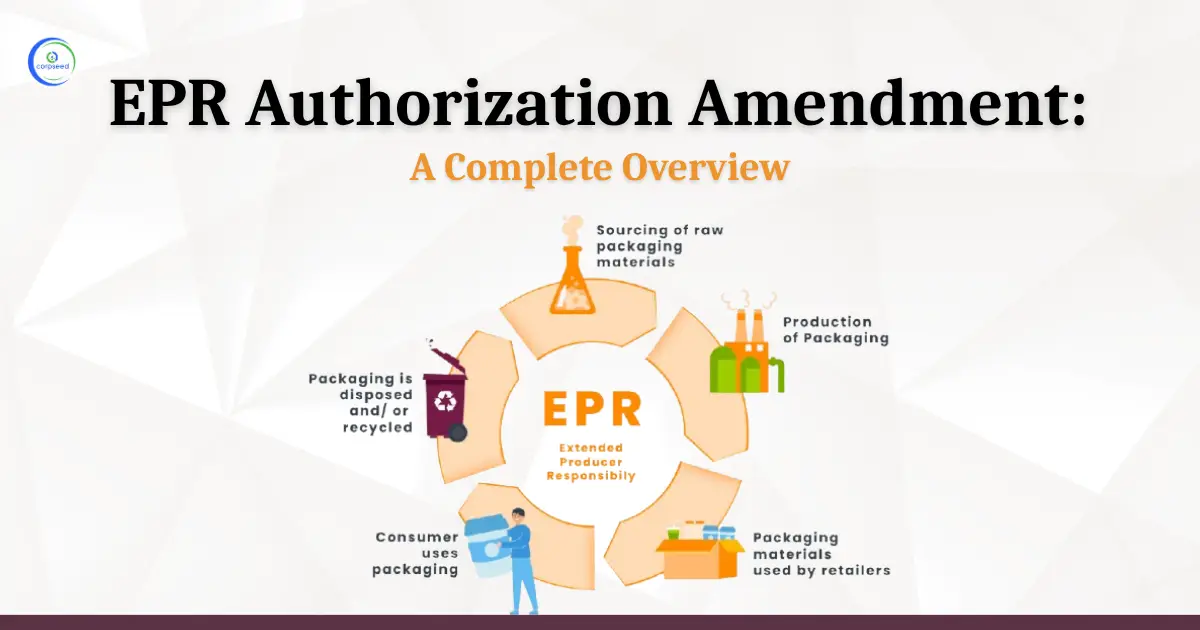
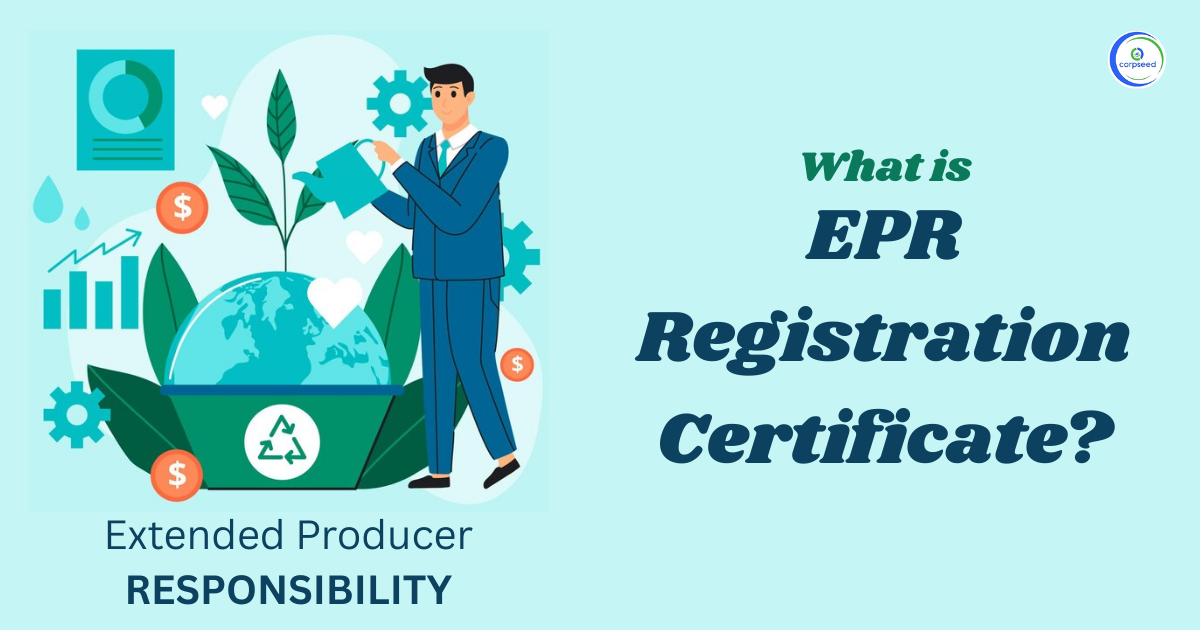
.webp)
